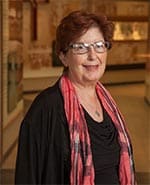BY JERRI LOCKE
Growing up, I remember friends daring each other to lick a 9-volt battery. If it had lost its charge, it was no problem and you only got a little tingling sensation on your tongue. If it was new, it packed a whollop and made you instantly regret that choice. (Children: don’t try this at home! Seriously. Don’t try this at home.)
Life would be easier if there was a simple test to check for the “charge” left in our batteries. Sometimes the first indicator that our batteries are nearly dead is a trip to the doctor with complaints of not feeling well. In hindsight, you might remember your illness started with a number of sleepless nights, your pants being a little too snug, or a need for one more cup of coffee just to get to the end of the day.
It’s one thing for your battery to need to recharge; it’s another for it to completely run down. Just like with your car, your battery doesn’t die at an opportune time. It happens just before a big presentation is due at work, or when your child is graduating, or when your parent becomes ill. This is becoming an increasing problem for adults in “the sandwich generation,” those who are taking care of both their children and their parents.
We make sure our cars receive the proper maintenance so we are not stuck on the side of the road waiting on a tow truck, but many times we think our health will take care of itself and don’t provide the maintenance needed to ensure our motor is happily humming.
Recharging your battery can be done with very simple additions to your daily life. Adding meditation or a deliberate quieting of your mind can be done while standing in line at the grocery store. Rather than becoming impatient, realize that you have been given a few minutes to be quiet. You cannot go anywhere; your groceries are already on the conveyor belt. Avoid the temptation to look at your phone and instead take a few deep breaths to help quiet your mind. Take a minute to listen to your surroundings. You might hear a bird or the wind or children laughing.
Other ways to regroup:
- Get outside once a day for some vitamin D. Sunshine and fresh air can help you decompress, clear your head and recharge. “Even though the temperatures may be hot, make it a point to get outside,” says Nancy Georgekuttty, MD, family medicine physician on the medical staff at Methodist Mansfield Medical Center. “Just remember to use sunblock and stay hydrated.”
- Make sure you’re getting enough fruits and vegetables in your diet. Methodist Health System Wellness Director Kathy Ross, RN, MHA, says, “eating 5 servings of fruits and veggies each day may reduce your risk for many diseases, including heart disease and high blood pressure. Plus, the natural sugar in fruit can help you feel healthy and energized.”
- Make time to do those annual visits with your physician. If you have experienced more mood swings, a change in appetite, or trouble sleeping, share that with your doctor and then follow through on the suggestions. Need a physician? Let us help you find one.
- Get at least 30 minutes of moderate exercise every day. Ross says, “Exercise can help control your weight, improve your mood and mental health and reduce your risk of cardiovascular disease and diabetes.” Start small – and check with your doctor before starting an exercise plan.
- Get a good night’s sleep. The younger generation is not the only one to keep electronic devices at the end of their arm all day, we all do it. Turn them off, put them in a drawer, take time to think about your day and plan for tomorrow.
Adding just a few simple steps will help that much-needed maintenance to keep our motors humming even better than our cars.
About the author
 Jerri Locke is the Director of Healthy Aging for Methodist Health System. She directs a membership program, Methodist Generations for adults who are at least 55 years of age. She is driven to provide quality programs to help the older adults maintain a healthy life. Jerri has a Bachelors in Education from Abilene Christian University, as well as a Masters in Rehabilitation Counseling from University of North Texas and a Masters in Human Relations and Business from Amberton University. She was born and raised in Oak Cliff and values the diversity, the history, and the community it provides. She’s a mom of two young adults, foster mom to a variety of rescue dogs, and part time caregiver for her parents.
Jerri Locke is the Director of Healthy Aging for Methodist Health System. She directs a membership program, Methodist Generations for adults who are at least 55 years of age. She is driven to provide quality programs to help the older adults maintain a healthy life. Jerri has a Bachelors in Education from Abilene Christian University, as well as a Masters in Rehabilitation Counseling from University of North Texas and a Masters in Human Relations and Business from Amberton University. She was born and raised in Oak Cliff and values the diversity, the history, and the community it provides. She’s a mom of two young adults, foster mom to a variety of rescue dogs, and part time caregiver for her parents.

